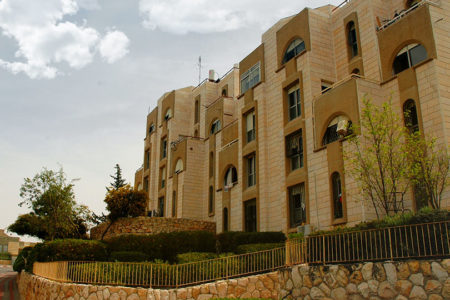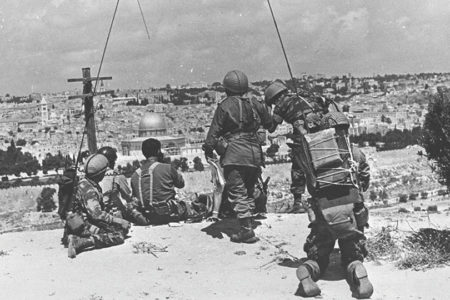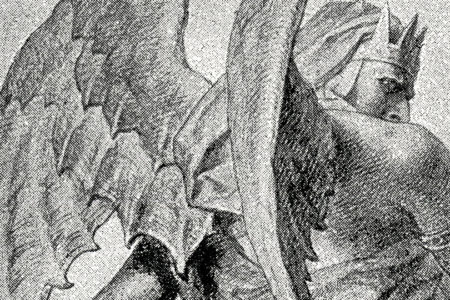Israel in the News May/Jun 2017
Israel Hosts Annual Bible Run
If you’re a runner and love Israel, you may be interested in signing up for the third annual Bible Run on October 6, a reenactment of the first-ever recorded marathon—the trek of a Jewish man from the tribe of Benjamin who ran from Afek to Shiloh to tell Eli the high priest the Ark of the Covenant had been captured (1 Sam. 4:12, 17).
The run takes place during the Feast of Tabernacles (Sukkot), when Jews and Christians around the world flock to Israel. It includes a full marathon (26.2 miles), a half marathon (13.1 miles), a 10K (6.2 miles), and a 5K (3.1 miles). Three thousand people ran in 2016, and more are expected to participate in 2017.
The run originated with Yosef Yekutieli, founder of the Maccabiah games, the Olympics for Jewish athletes. Determined to check the veracity of the biblical story, Yekutieli drove from Afek—now located in the bustling city of Rosh HaAyin—to Shiloh, a modern town and ancient historical site in the heart of Israel’s Benjamin region. He was astounded to find the number on his odometer read 42 kilometers (26.2 miles), the exact distance of the modern marathon.
In 1969, a handful of men resurrected the Bible Run as an informal event, but it folded after four years due to lack of interest.
In 2015, a group of Israelis turned it into a national event. They shut down the main highways leading from Rosh HaAyin to Shiloh for one day, and hundreds of people “ran history” and relived the story. In the following two years, participants increased to thousands, including runners from foreign countries.
Today’s route runs from the modern high-tech park of Afek just outside Rosh HaAyin, down Route 5 from Tel Aviv to the city of Ariel, then southward to Shiloh along Route 60.
The 2017 Bible Run promises to be bigger than ever. Organizers are working with American Friends of Ariel to allow runners from around the world to relive history.
For more information, visit www.friendsofariel.org/2016/10/biblemarathon.
French Court: Judea, Samaria Belong to Israel
At the recent Mideast peace conference in Paris, a 2013 ruling of the Court of Appeal of Versailles—which acknowledges Israel as the legal occupant of Judea and Samaria (the “West Bank”)—undercut the conference’s goal to “once more depict Israeli settlements as a grave violation of international law,” The Wall Street Journal reported.
The French court’s decision, which the media largely has ignored for years, concluded Arab-Palestinians have no international, legal rights to Judea and Samaria and that Israel legally occupies the land beyond the 1967 line.
The decision followed the Palestine Liberation Organization’s (PLO) lawsuit against French companies Alstom and Veolia for building a light rail system through Jerusalem, which the PLO claims Israel occupies illegally. The court rejected the PLO’s arguments and ruled Israel maintains legal rights to the land.
Although the decision does not affect international law, its use of international law to clarify the legal reality is telling, according to French lawyer Jean-Patrick Grumberg. “It is the first time since the establishment of the State of Israel in 1948 that an independent, non-Israeli court has been called upon to examine the legal status of ‘West Bank’ territories under international law, beyond the political claims of the parties,” Grumberg said. “Israel has real rights in Judea and Samaria,…[and] its decision to build a light rail or anything else in the area is legal.”
From news reports
Israels’ Iconic Photographer, David Rubinger, Dies at 92
World-renowned photographer David Rubinger, the man whose camera chronicled the history of the Jewish state for Time magazine, died in March in Jerusalem. “Think of a photograph from Israel,” wrote Karl Vick in Time, “and chances are it was taken by David Rubinger.”
His most famous photo is of the Israeli paratroopers gazing up at the Western Wall minutes after it was captured during the 1967 Six-Day War (see page 12). Wrote Isabel Kershner in The New York Times, “Mr. Rubinger recalled that he had to lie down in the narrow space between the wall and some houses to shoot it, then rushed home to develop the film.”
“Through his photography, David eternalized history as it will be forever etched in our memories,” said Israeli President Reuven Rivlin. Rubinger’s images and autobiography are compiled in the book Israel Through My Lens: Sixty Years as a Photojournalist.
From news reports
U.S., Israel Fight Cyberterroism
The U.S. House of Representatives has passed new legislation improving American-Israeli cooperation in global cybersecurity to fight cyberterrorism. “Cybersecurity is the preeminent national security issue of the Information Age. Working together with our allies will be essential to preserving our collective defense in this new domain,” U.S. Rep. Jim Langevin (D-RI) said.
The United States-Israel Cybersecurity Cooperation Enhancement Act of 2017 creates a cybersecurity grant program for joint research and development projects. Steven Stalinsky, executive director of the Middle East Media Research Institute, said the legislation will benefit both nations in fighting their shared enemies in the cyber realm, “consisting of both jihad groups as well as hacktivist groups…who also target the Jewish community worldwide online.”
JNS.org
Secret Letters Reveal Nazi Horrors
Some 27 secret letters written in urine from the women’s concentration camp in Ravensbruck with information about medical experiments conducted on prisoners have been gifted to a small museum in Poland where they will undergo preservation work.
The letters, gifted to the “Under the Clock” Martyr Museum in Lublin, came from the family of one of its authors, Krystyna Czyz-Wilgat. Texts were written using a thin linden stick. As a result of an acid reaction with the paper, the urine lost its color after a short time and then became invisible. “The letters were ironed and the writing turned brown,” explained Barbara Oratowska, the curator of the museum.
The encrypting messaging now makes public the list of 74 women from Lublin who were subjected to medical experiments by Nazi doctors in Ravensbruck, such as being injected with gangrene to test new drugs.
The letters were sent between 1943 and 1944. Between 1939 and 1945, approximately 132,000 female prisoners passed through Ravensbruck, including Corrie ten Boom, a Dutch evangelical Christian whose family hid Jewish people before being betrayed and deported to concentration camps.
JPost.com
New Neighborhood Planned
For the first time since the Six-Day War, 250 new acres have been attached to Jerusalem, completing a multiyear process enabling the municipality to build a new residential neighborhood in Jerusalem with more than 2,000 housing units.
The area was once an agricultural area of Kibbutz Ramat Rachel. The municipality recently received an official letter from the Interior Minister announcing transfer of the demarcated area. Consequently, the Jerusalem municipality, together with the Housing Ministry and the Israel Lands Authority, plan to build in this area the Mordot Arnona neighborhood.
Arutz-7








